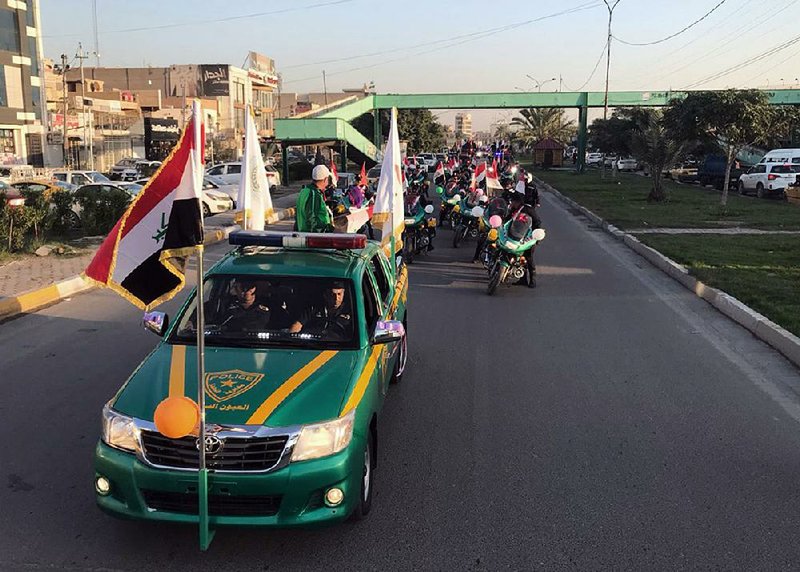BAGHDAD -- Iraq began removing cement walls from areas surrounding the capital's most fortified enclave Monday, opening parts of the so-called Green Zone to traffic in a symbolic move coinciding with nationwide celebrations marking the anniversary of the country's costly victory over the Islamic State group.
The partial reopening of parts of the high-security area is meant to portray increased confidence in the country's overall security situation and is also being billed as an act of transparency after protests against corruption and poor public services.
The enclave on the west bank of the Tigris became home to foreign embassies and key government buildings after the U.S.-led invasion of 2003 and has since then been surrounded by blast walls and barbed wire, inaccessible to most Iraqis.
The partial reopening of some side streets -- initially just for five hours a day -- has been repeatedly delayed and then timed to coincide with the one year anniversary of Iraq's victory over the Islamic State. The group has lost virtually all the territory it once held but still carries out sporadic attacks to hang on to its last enclave in Syria near the Iraqi border.
The government declared victory last December after a grueling three-year war in which tens of thousands of people were killed and hundreds of thousands displaced. Entire towns and neighborhoods were reduced to rubble in the fighting.
The government declared Monday a national holiday, and a moment of silence was held at midday. Checkpoints in the capital were decorated with Iraqi flags and balloons, as security forces patrolled the streets playing patriotic music.
"That victory and the relative stability in security is a golden opportunity for the government to rebuild the country and to meet the needs of its people," said Sameer al-Obaidi, who led an initiative in the capital's Sunni-dominated northern Azamiyah neighborhood to distribute flowers to security forces at checkpoints.
"It is important to treat all Iraqis equally so that they feel that their sacrifices are appreciated," al-Obaidi added.
The celebrations come as political infighting has hindered the formation of the government and setting next year's budget, amid a deteriorating economic situation as the country grapples with the legacy of the extremist group's brutal rule.
More than 1.8 million Iraqis remain displaced across the country, and a staggering 8 million require some form of humanitarian aid, according to the Norwegian Refugee Council. T
Nearly two-thirds of displaced people say they are unwilling or unable to return home in the next year, with more than half saying their homes were damaged or destroyed, according to the aid group.
"If this is what 'victory' looks like, then there is little to celebrate for millions of Iraqis still haunted by the crimes of the IS and the long war to eliminate it," said Norwegian Refugee Council Secretary General Jan Egeland. "They have largely been forgotten by their own government and the international community."
Information for this article was contributed by Qassim Abdul-Zahra of The Associated Press.
A Section on 12/11/2018

